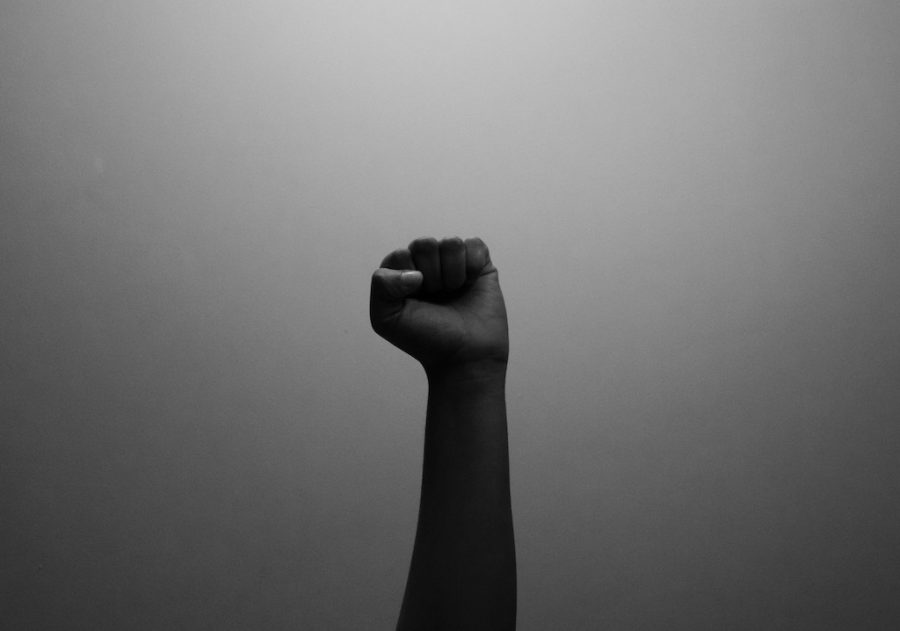Opinion: Athletes Have the Right to Protest Social Issues
A student raises fist in black power salute.
March 6, 2017
Shortly after winning the gold and bronze medals in the 1968 Olympic 200-meter run respectively, John Carlos and Tommie Smith stood on the podium awaiting the playing of the American national anthem.
Amid threats and warnings, the two defiantly raised their fists in the black power salute. The picture of this moment has come to symbolize a movement.
Of course, the expression of solidarity with the black power movement back home in the U.S. drew criticism from some and support from others. Today, the same variation of reactions occurs.
The most notable example as of late is Colin Kaepernick. To bring attention to the injustices in America, the NFL quarterback decided to kneel instead of stand during the national anthem. The move drew both criticism and support. Some claimed he was disrespecting our troops; others said he was representing the very thing the troops were fighting for.
What bothered me about the ordeal wasn’t Kaepernick or his method of protesting, although some have argued he could have gone about it a more “effective,” way. What bothered me was the dismissal of Kaepernick because he’s an athlete. After all, athletes are only there to entertain us, right?
Before and after Kaepernick’s example, athletes in various professional leagues like the WNBA, NBA, NFL, and NWSL spoke out as well. They knelt during the national anthem, held press conferences discussing social justice, and held “media blackouts” – at which they would only discuss social justice instead of the games they just played – all because they feel passionately about the injustices going on in America, as every citizen should be.
And just like Kaepernick, they have drawn lots of criticism from it.
One of the reasons for this is that we often separate athletes from humans. We view them as purely entertainment. It’s wrong to expect athletes to only entertain us, as if they’re soulless robots. We need to remember that athletes are human too. They are American citizens too. They watch the news, they see and experience what’s going on in our country. They have the right to speak out just like you and I do.
A majority of athletes in the NBA, NFL, and WNBA are people of color, so they still run the risk of being treated unjustly for reasons beyond their control. Yes, generally athletes have more of a privilege than the average citizen, but money doesn’t change the color of their skin.




